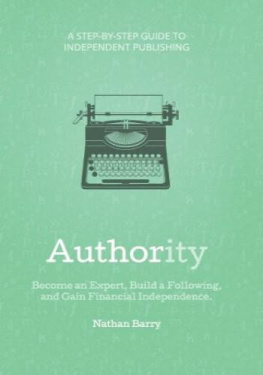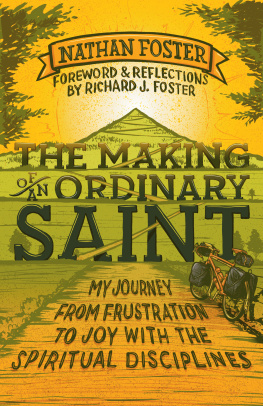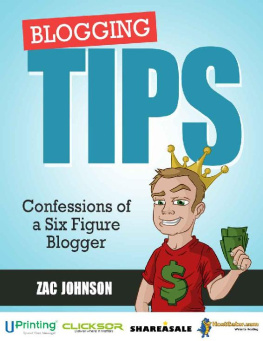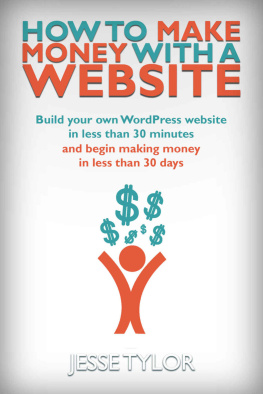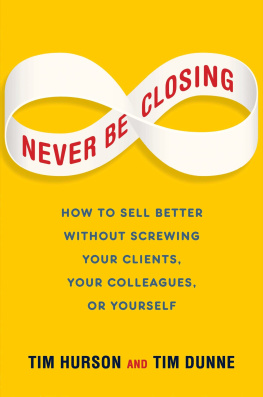CONTENTS
CHAPTER ONE
On Writing
Why Write?
Have you ever played the game Marco Polo? Its a pretty simple game and its the most fun if played in a pool. The rules are simple: one person closes their eyes and tries to catch or tag someone else. In order to find people, the person who is it can say Marco at any time. Everyone else has to respond Polo. By listening to where the sound is coming from the person who is it can more easily find their prey. Once they touch someone else, the game starts over with the person who was caught now trying to find everyone else.
Its a great game. At least it kept 10 - year - old me quite entertained.
What does this have to do with writing?
Well, nothing. Except that I want to talk about Marco Polo. The explorer, not the kids game.
The Explorer
Marco Polo was a Venetian explorer who lived from 1254 to 1324 and became famous for being the first to explore the Silk Road to China. At least thats how he is remembered. There is only one small problem. He wasnt an explorer at all. Like all good Venetians of the time , he was a merchant.
Plenty of people had explored the roads to the East long before Marco Polo. In fact, Marcos father and uncle had made their exploratory trips well before Marco was born. So why does Marco get all the credit? Why is he the one we remember and name silly games after?
Simple. He wrote about it.
Those Who Teach
Think through the people who are well known in your industry. Why do you know who they are?
Are they the most talented? Sometimes, but often not.
Almost always it is because they teach. I know when it comes to web design (my industry), the people I had heard of were the ones whose books, tutorials, and blog posts I had read. They werent necessarily the most talented, but they shared and taught everything they knew.
Thats how they became well known.
You can continue to create cutting - edge work and strive to be the best in your industry, but until you start teaching and sharing, your reach and influence will be limited.
Teaching Web Design
Back in 2007 Chris Coyier launched a site called css-tricks.com. It was a site dedicated to teaching people how to code websites . (CSS is the language that describes how websites should look . ) When CSS-Tricks first came out I remember reading a tutorial and arrogantly thinking , I know that already. Chris and I were at about the same skill level, so I didnt learn anything new from him.
This continued for a while as he kept putting out new tutorials. But over time , as friends started asking me CSS questions , I found it easier to link to one of Chriss articles (since they were really well written) than explain everything myself.
Years later Chris ran a Kickstarter campaign to redesign his site. Those who contributed would get behind-the-scenes access to additional tutorials and content related to the redesign.
The goal was set fairly low at $3,500. He quickly blew past the goal and by the end of the campaign had raised $89,697.
Incredible.
The point is that he did it with relative ease , all because he had built up an audience who loved his work.
He and I started at the same point and our skills progressed at about the same rate. The difference was that he taught and shared, whereas I kept what I was learning to myself. That made the difference between being able to make tens of thousands of dollars on a new project versus releasing to no one.
To be known, you must teach
Watching Chriss successful campaign , it finally sunk in that I needed to be teaching. My worth to the world wasnt in how well I knew CSS or how effectively I could code a website, but instead in how much value I could deliver to other people through teaching.
So I started to write my own tutorials and build my own audience. Within a year I had released two eBooks and made over six figures in profit from them.
The way I see it, you have two options: keep your skills and knowledge to yourself and be quickly forgotten (like the first explorers), or take the Marco Polo/Chris Coyier path and share what youve learned so that you will be remembered.
Which path is for you?
A skill that makes money
Its not just about being remembered. Those who teach, under the right circumstances, can make a respectable income as well.
The main idea I want to leave you with from this book is this: if you know a skill that other people use to make money, you can make a living by teaching that skill. Most people think that teaching is for school. After high school or college the belief is that you are done learning, and now you can work.
But the truth is that to be successful you need to keep learning every day, whether you are a programmer learning new languages or a businessman getting an MBA.
In order to get promoted or take a businesses to the next level, new skills are required. When a developer learns a new programming language, he is more useful to the company he works for, meaning he can make more money.
An accidental expert
An architect in Southern California wanted to find a way to make himself more valuable to his company. He wasnt being altruistic; he just wanted to be valued so that he would be promoted more quickly.
When looking at what made other architects stand out, Pat, the architect in our story, found the LEED certification for green buildings. Pat started to study for this very difficult exam, taking detailed notes as he went. Instead of putting these notes down on paper or a file on his computer, Pat put them in a program called WordPress. Using WordPress, Pat created a simple website to organize all his notes so that he could access them from any computer.
After months of studying Pat passed the exam and moved on with his life.
Then almost a year later the economic downturn hit the architecture firm Pat worked for and he was laid off. Since he had a few projects to finish up, Pat started to look at his options. During that time he started to learn about online marketing, which made him think about emails he had received recently about his study notes.
You know how Pat could access those notes from any computer? Well, they were put on a public website, so anyone could access the notes. That meant other people were using his notes to study also.
Curious about the emails he was receiving, Pat put a Google Analytics tracking code on his site, then waited until the next day. The results were incredible: four or five thousand people were coming to his site every day.
Search engines had indexed his notes and people were finding Pats site through searches. Thousands of people were using those random notesnotes that most people would just put in a notebook and forget aboutand using them to pass this exam.
Once Pat realized this and started to participate in his site, people asked questions.
Pat had become an expert without even trying.
Making money
Since Pat was out of a job, he needed to find a way to make money. Ads were the first route he tried. First he tried Google text ads, but those didnt pay much money. Later he tried selling banner ads directly to companies with related products. That worked, but still didnt bring in a huge amount of money.
It wasnt until he took all his notes and packaged them up as a study guide that Pat started to make meaningful money from his site.
The guide wasnt new content, just the same content that was available for free on his site, but organized differently and distributed as a PDF. People were happy to pay.
In the first month, October 2008, he made $7905.88 in sale, considerably more than he was making at his salaried job.
Sales continued to climb. Since launching the book Pat has made roughly half a million dollars in sales. And it all started with some study notes.

